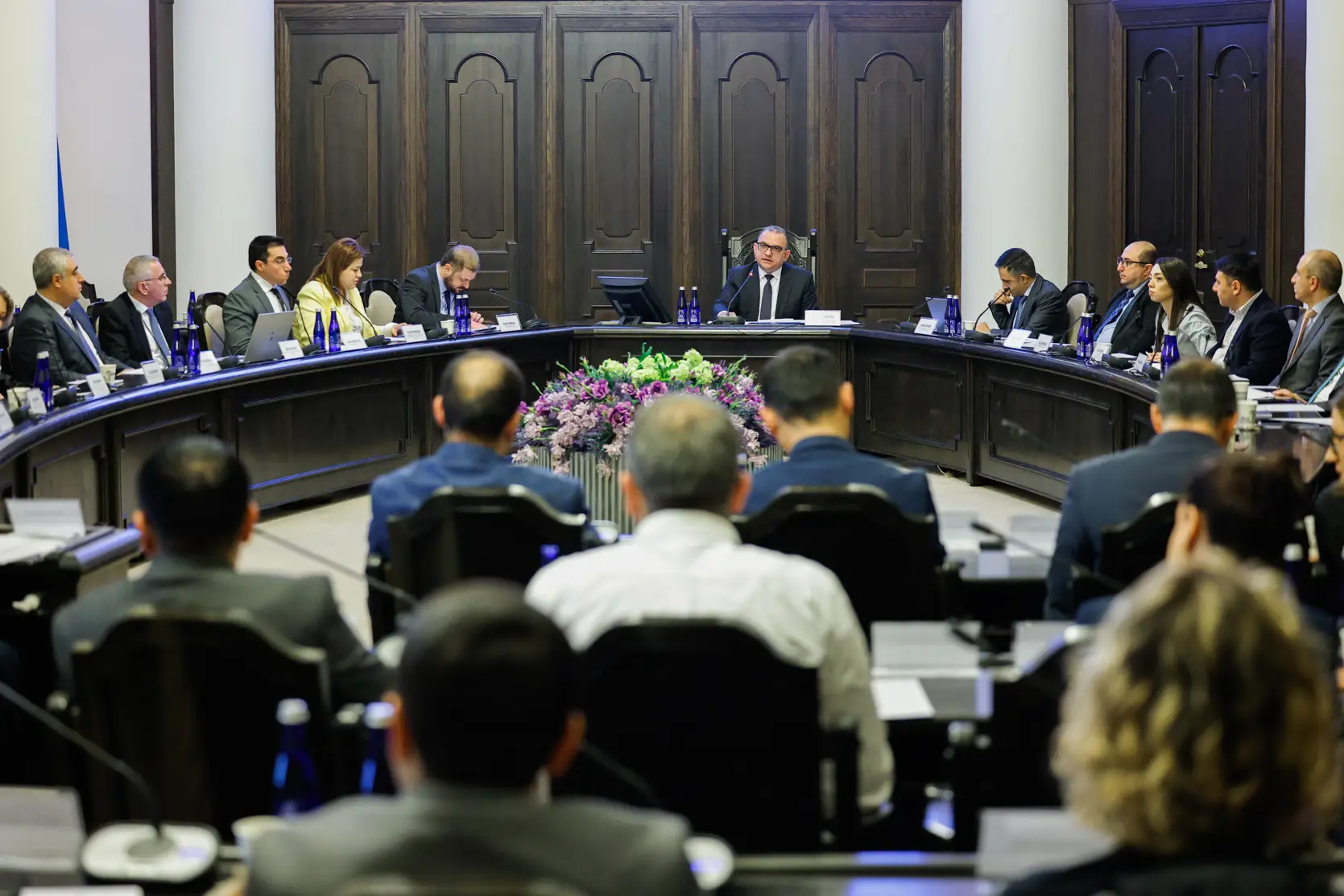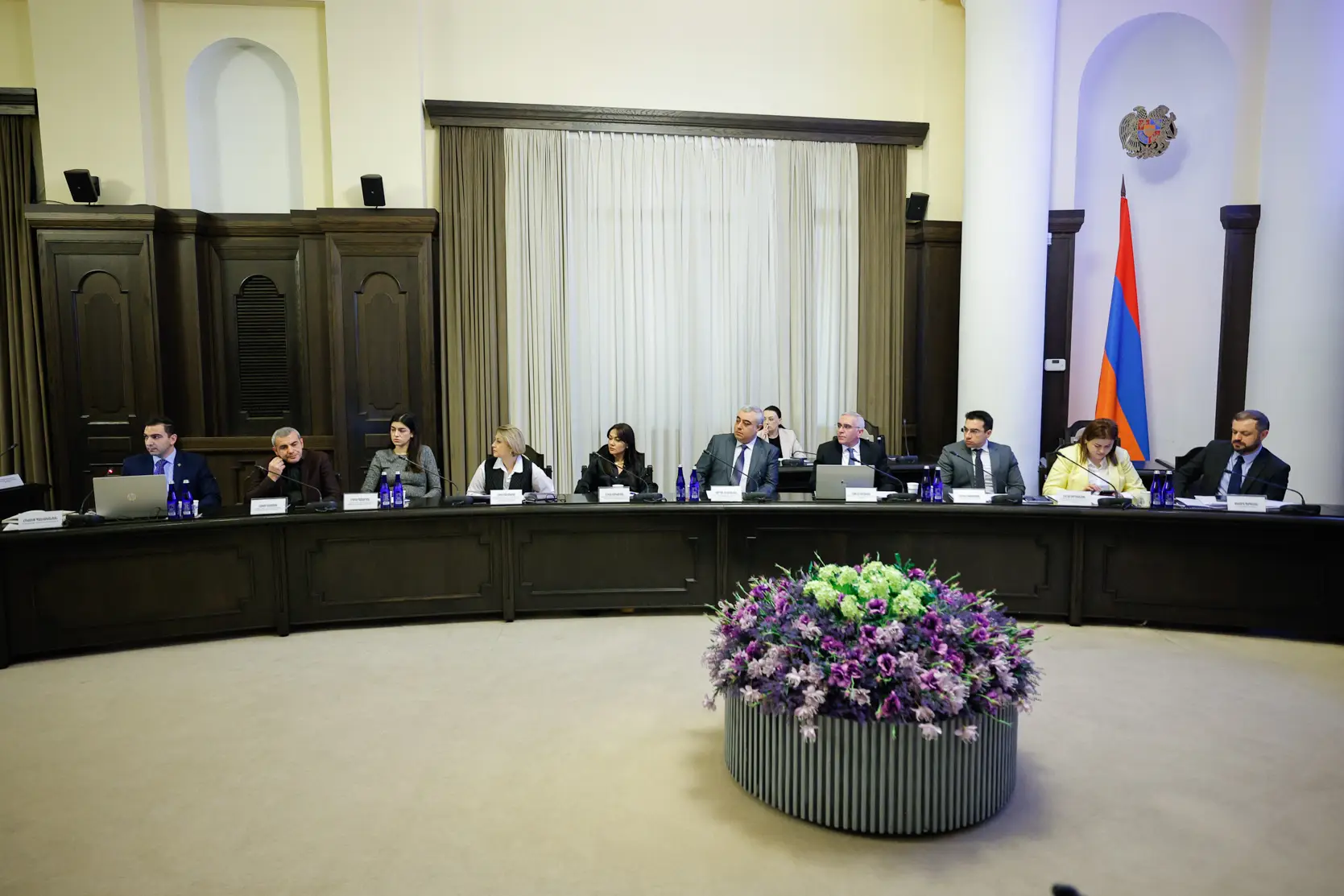4th March 2025
26th Session of the SME Development Council led by the Deputy Prime Minister Tigran Khachatryan
Other
Council Meetings

The first session of the SME Development Council for 2025 was held under the chairmanship of Deputy Prime Minister Tigran Khachatryan.
The Minister of Economy of the Republic of Armenia, Gevorg Papoyan, presented the rotation of Council members during 2024 and the results of the discussion on the Council's working procedures. Mr. Papoyan also presented information about three new members joining the SME Development platform: "Republican Union of Employers of Armenia (RUEA)", "2B Foundation" and "Informed Taxpayer".

Following this, the head of the Investment Council of Armenia, Hovsep Patvakanyan, presented the initiatives discussed within the framework of the Council in 2024, in particular:
Measures to encourage manufacturing sector companies to hire new employees, including those without work experience or those needing retraining, and to provide on-the-job training.
Regulations to prevent the frequent non-fulfillment of payment obligations between retail chains and supplier organizations.
Establishment of a legal framework for SAFE (Simple Agreement for Future Equity) contracts (draft law on amendments and additions to the "Law on Joint-Stock Companies" of the Republic of Armenia).
Implementation of legal regulations for factoring contracts in exchange for the assignment of monetary claims arising from a procurement contract (draft government decision on amendments to the Government Decision No. 526-N of May 4, 2017).
Public discussion on the E-draft platform regarding the draft law on amendments and additions to the Tax Code of the Republic of Armenia, aimed at transferring professional services from special taxation systems to the general taxation system.
Regulatory measures to eliminate the need for repeated expert examinations when exporting goods that are not dual-use items and importing goods that are not for military use (draft laws on amendments to the "Law on Export Control of Dual-Use Goods" and the "Law on Customs Regulation").
Introduction of an installment payment option for cadastral value differences resulting from changes in land use designation (draft law on amendments to the Land Code of the Republic of Armenia).
Discussion of legislative issues related to limited liability companies (draft package of laws on amendments and additions to the "Law on Limited Liability Companies," the "Labor Code of Armenia," and the "Law on State Registration of Legal Entities, Separate Subdivisions, Institutions, and Individual Entrepreneurs").
Issues related to product labeling with QR codes under the February 2, 2018, "Agreement on Labeling of Goods with Means of Identification in the Eurasian Economic Union" and Article 396.1 of the Armenian Tax Code (from the Sub-Council session).
The non-exhaustive nature of the cases specified in Article 53, Part 9 of the Armenian Tax Code regarding the non-resumption of taxpayer activities (from the Sub-Council session).
The lack of necessity for enshrining cashier-related operations in Article 388, Part 4 of the Armenian Tax Code (from the Sub-Council session).
Revision of certain technical requirements for implementing educational programs.
Initiative for reforming regulations on the write-off of uncollectible receivables (draft law on amendments to the Armenian Tax Code).
Introduction of legal regulations for convertible debt agreements related to LLC shares or JSC stocks (draft package of laws on amendments to the Civil Code, the "Law on Limited Liability Companies," and the "Law on Joint-Stock Companies").
A package of tax code amendments to encourage businesses to increase donations to universities, vocational schools, and general education institutions (draft law on amendments to the Armenian Tax Code).
Definition of the concept of option contracts and their key application conditions, as well as the establishment of a regulatory framework for option contracts.
Review of administrative liability for employers failing to properly calculate or pay wages as required by law (draft law on amendments to the Code of Administrative Offenses of Armenia).
Setting a minimum penalty for incorrect printing of TGT or ADGT codes on fiscal receipts, provided that the actual product name is correctly printed (draft law on amendments and additions to the Armenian Tax Code).
Discussion of draft laws on amendments and additions to the "Law on Protection of Economic Competition" and related laws (from the Sub-Council session).
After this, meeting participants started a discussion about reducing working hours in Armenia, particularly — the draft law on amendments and additions to the "Labor Code of Armenia," published on the E-draft platform, which proposes reducing working hours from 8 to 7 hours per day and from 40 to 35 hours per week while maintaining wages. Different council members and government officials presented their opinions about this initiative. The Council members expressed a negative stance on the matter.
Director of the Armenian Center for Socio-Economic studies - ACSES, Haykaz Fanyan, presented the research conducted by their organization, recommending to refrain from reducing working hours for now. Continuing the discussion, a negative stance was also expressed in their speeches by the President of the Republican Union of Employers of Armenia, Vahagn Hambardzumyan, and the Deputy Director of the Union of Advanced Technology Enterprises (UATE), Edita Ghazaryan.